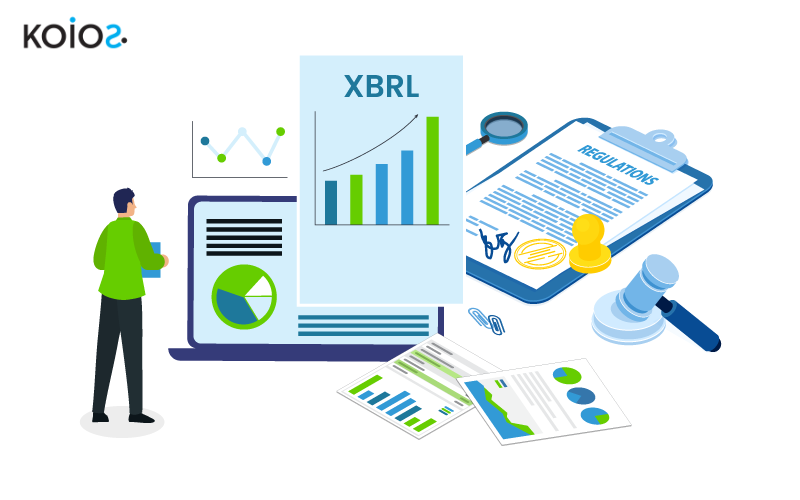
Transition to XBRL: A new reporting format for Croatian banks
The Croatian National Bank (CNB) is preparing to implement significant amendments to the reporting framework for credit institutions. This transition aligns with the evolving standards of the European Central Bank (ECB) and the European Banking Supervisory Authority (EBA), aiming to enhance the clarity and efficiency of financial reporting across Europe. At Koios, we stand at the forefront of these changes, offering tailored IT solutions that ensure seamless adaptation to the new reporting requirements in XBRL format.
The Current Landscape and the Impending Shift
Until now, Croatian banks have primarily submitted their reports in XML format, as stipulated by the CNB. These reports are then converted to XBRL (eXtensible Business Reporting Language) before being forwarded to the ECB and EBA. However, this process introduces several challenges, including operational risks and technical delays due to the conversion from XML to XBRL.
The proposed legislative changes advocate that while the current XML format will remain in use until November 30, 2025, from December 31, 2025, onward, all credit institutions will be required to adopt the XBRL–CSV format. This shift is not merely a change in data format—it represents a significant enhancement in the transparency and efficiency of data handling and reporting.
The Challenge with XML
The existing XML reporting system necessitates frequent adjustments to align with updates in the EBA‘s reporting taxonomy. These updates often introduce more complex requirements that the current XML parameters cannot support. Additionally, the XML format lacks certain elements crucial for accurate XBRL generation, such as clear differentiation between empty fields and those not required to be reported.
Koios’s Solutions
Understanding the complexities associated with this transition, Koios has developed robust solutions to facilitate a smooth conversion to XBRL reporting:
-
Integration with SIBS: For banks utilizing SIBS for their reporting processes, Koios will enhance this system to natively support and generate reports in XBRL format, ensuring a seamless transition without disrupting existing workflows.
-
Microservices for Non-SIBS Users: Banks that do not use SIBS will benefit from a microservices-oriented architecture, specifically designed by Koios to support XBRL format reporting. This flexible solution caters to institutions with varied technological landscapes, enabling them to meet new reporting standards efficiently.
What is XBRL?
XBRL is more than just a reporting format. It is a comprehensive language for business and financial data exchange, capable of defining and expressing the semantics of business reports in a structured manner. XBRL supports data representation in multiple formats such as XML, JSON, and CSV, facilitating the development of reusable and authoritative taxonomies. These taxonomies define the relationships and rules associated with reporting terms, ensuring that data is not only conveyed but also understood and processed correctly by all stakeholders.
Bottom line
The transition to XBRL reporting is a transformative step for the Croatian banking sector, promising enhanced report accuracy, faster data exchange, and improved regulatory compliance. Koios is committed to leading this change, providing cutting-edge solutions that empower banks to navigate this new landscape confidently. As we move towards a more digital and data-driven future, Koios remains your trusted partner in regulatory reporting and financial technology.